Genealogy
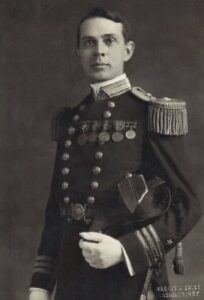 The United States Navy ship USS Knox (FF-1052) was named for Commodore Dudley Wright Knox, who was an officer in the United States Navy during the Spanish-American War and World War I. Born in Fort Walla Walla, Washington, on June 21, 1877, Knox was also a prominent naval historian. For many years he oversaw the Navy Department’s historical office, now called the Naval Historical Center. I can’t say for sure, nor exactly how, but I suspect that Dudley Wright Knox is somehow related to my husband, Bob Schulenberg’s Knox side of the family. That will be a subject I will need to explore further in the future.
The United States Navy ship USS Knox (FF-1052) was named for Commodore Dudley Wright Knox, who was an officer in the United States Navy during the Spanish-American War and World War I. Born in Fort Walla Walla, Washington, on June 21, 1877, Knox was also a prominent naval historian. For many years he oversaw the Navy Department’s historical office, now called the Naval Historical Center. I can’t say for sure, nor exactly how, but I suspect that Dudley Wright Knox is somehow related to my husband, Bob Schulenberg’s Knox side of the family. That will be a subject I will need to explore further in the future.
Knox attended school in Washington DC and graduated from the United States Naval Academy on June 5, 1896. Following his graduation, he served in the Spanish-American War aboard the screw steamer Maple in Cuban waters. A screw steamer or screw steamship is an old term for a steamship or steamboat powered by a steam engine, using one or more propellers…also known as screws…to propel it through the water. These ships were nicknamed iron screw steam ship.
His was a long and distinguished career. During the Philippine-American War, Knox commanded the gunboat Albay, and during the Chinese Boxer Rebellion, the gunboat Iris. He then commanded three of the Navy’s first destroyers…Shubrick, Wilkes, and Decatur. Following his attendance and graduation from the Naval War College in 1912–13, Knox became the aide to Captain William Sims, commanding the Atlantic Torpedo Flotilla. During the cruise of the “Great White Fleet,” he was sent around the world by President Theodore Roosevelt, as an ordnance officer on the battleship Nebraska (BB-14).
He took the lead in developing naval operational doctrine when he published an article of great influence in the US Naval Institute Proceedings in 1915. He was Fleet Ordnance Officer in both the Atlantic and the Pacific, serving in the Office of Naval Intelligence, and commanding the Guantanamo Bay Naval Station. The job of a Fleet Ordnance Officers is to ensure that weapons systems, vehicles, and equipment are ready and available…and in perfect working order, at all times. These officers also manage the developing, testing, fielding, handling, storage, and disposal of munitions. In November 1917, Knox joined the staff of, by then, Admiral William Sims, Commander of US Naval Forces in European Waters. Knox earned the Navy Cross for “distinguished service” while serving as Aide in the Planning Section and later in the Historical Section. He was promoted to Captain on  February 1, 1918. In March 1919, Knox returned to the United States. He served for a year on the faculty of the Naval War College, where he was a key figure on the Knox-King-Pye Board that examined professional military education. In 1920–21, he commanded the armored cruiser Brooklyn (ACR-3), then the protected cruiser Charleston (C-22) before resuming duty in the Office of the Chief of Naval Operations.
February 1, 1918. In March 1919, Knox returned to the United States. He served for a year on the faculty of the Naval War College, where he was a key figure on the Knox-King-Pye Board that examined professional military education. In 1920–21, he commanded the armored cruiser Brooklyn (ACR-3), then the protected cruiser Charleston (C-22) before resuming duty in the Office of the Chief of Naval Operations.
Also in 1920, Knox first began his work as a naval publicist, serving as naval editor of the Army and Navy Journal until 1923. He then became the naval correspondent of the Baltimore Sun in 1924 – 1946, and naval correspondent of the New York Herald Tribune in 1929. While he was transferred to the Retired List of the Navy on October 20, 1921, he actually and strangely continued on active duty, serving simultaneously as Officer in Charge, Office of Naval Records and Library, and as Curator for the Navy Department. Knox played a key role in creating the Naval Historical Foundation. Early in World War II, he was assigned additional duty as Deputy Director of Naval History.
In a career that spanned half of a century, Knox’s leadership inspired diligence, efficiency, and initiative while he guided, improved, and expanded the Navy’s archival and historical operations. Knox had personal connections to President Roosevelt, Fleet Admiral Ernest J King, and other senior leaders in the Navy Department. These relationships allowed him to play an instrumental role, albeit behind the scenes in the years leading up to and during World War II.
Knox published a number of writings and several books…including his first book “The Eclipse of American Sea Power” (1922) and “A History of the United States Navy” (1936). “A History of the United States Navy” is recognized as “the best one-volume history of the United States Navy in existence.” Through his personal connection with President Roosevelt, he was able to publish key, multi-volume collections of documents on 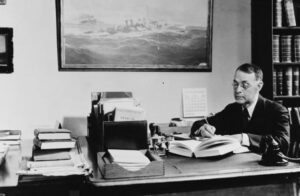 naval operations in The Quasi-War with France in 1798–1800, the first Barbary war and the second Barbary War…stories that may not have been told, had he not taken the initiative.
naval operations in The Quasi-War with France in 1798–1800, the first Barbary war and the second Barbary War…stories that may not have been told, had he not taken the initiative.
November 2, 1945, found Knox promoted to Commodore, and awarded the Legion of Merit for “exceptionally meritorious conduct” while directing the correlation and preservation of accurate records of the US naval operations in World War II, thus protecting this vital information for posterity. Finally, on June 26, 1946, Knox was relieved of all active-duty work. He died in Bethesda, Maryland, on June 11, 1960. His cause of death is listed as unknown. He was 83 years old.
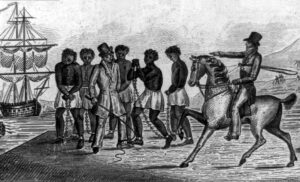
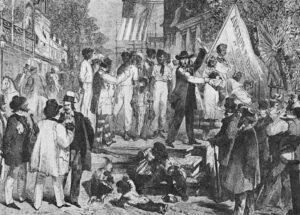 The years of slavery were awful for the African people who were sold into slavery by their own families or their countrymen. They were often stolen in the middle of the night, never to be in their homes again. Some of these slaves were young…some were even children. The terror must have been horrific. Nevertheless, it was what it was. Their life as they knew it was over. The journey to their new “home” was a hard one, and many people didn’t make it. That didn’t matter either, except in the revenue lost…they cared about that.
The years of slavery were awful for the African people who were sold into slavery by their own families or their countrymen. They were often stolen in the middle of the night, never to be in their homes again. Some of these slaves were young…some were even children. The terror must have been horrific. Nevertheless, it was what it was. Their life as they knew it was over. The journey to their new “home” was a hard one, and many people didn’t make it. That didn’t matter either, except in the revenue lost…they cared about that.
When the slaves arrived in the colonies, they didn’t have last names, or if they did, no one could really understand the last names. That didn’t matter to the slave sellers or the new master, because once sold, the slaves were given the last name of their masters, if they were given one at all. They were non-people. One must also understand that not all slaves were African. Many slaves came from Ireland too, but
I suppose it was easier to get away from their masters, because they were white too…not that they escaped, because where would they go. They were far away from their home too.
In those days, in Colonial America, slaves could win their freedom through lawsuits. I’m not sure what made them think they had a chance of winning their freedom. First of all, they had no money to get an attorney, and no attorney would have taken the case anyway. They had no way of proving their case, and what would their case have been? There was no code of conduct when it came to slaves. They could be beaten, raped, and even killed by their master. They could be overworked, under fed, and punished at will. There really was no case that could be made…as far as I can see anyway. As I said, there was a slim chance that a slave could bring a case, and even less chance that case. Nevertheless, even with that low chance of succeeding, winning in court meant 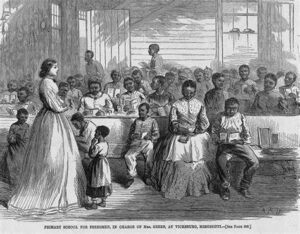
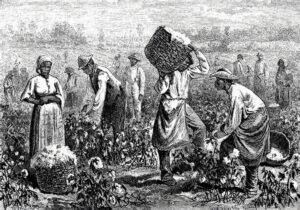 that the slave was now a citizen. They were free, and no one could dispute that again…legally anyway. The problem now was that these slaves had no last name, and they needed a last name to be a citizen. I seriously doubt they wanted to keep their master’s name. So, to solve the problem, the slaves were given the surname…Freeman. In my genealogist’s mind, there is no greater was to lose the true line of a family than such a name change.
that the slave was now a citizen. They were free, and no one could dispute that again…legally anyway. The problem now was that these slaves had no last name, and they needed a last name to be a citizen. I seriously doubt they wanted to keep their master’s name. So, to solve the problem, the slaves were given the surname…Freeman. In my genealogist’s mind, there is no greater was to lose the true line of a family than such a name change.
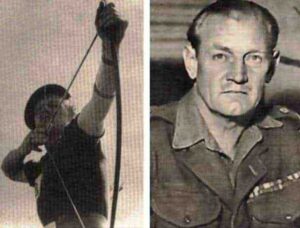
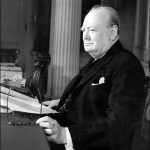 Most soldiers know that when you are trying to sneak up on your enemy, it’s probably best to leave the bagpipe playing at home. Nevertheless, John “Mad Jack” Churchill, who was one of the most colorful and unusual soldiers to fight in World War II, might find just about anything…you just never knew. The British-born “Mad Jack” Churchill had no known relation to Prime Minister Winston Spencer-Churchill, although I would not be surprised to find there was a relation. He was known for carrying a Scottish Claymore Sword into battle, and felt that any officer who didn’t have one while going into battle, was basically out of uniform. “Mad Jack”was also an avid archer and bagpipe player and brought both of these hobbies onto the battlefield.
Most soldiers know that when you are trying to sneak up on your enemy, it’s probably best to leave the bagpipe playing at home. Nevertheless, John “Mad Jack” Churchill, who was one of the most colorful and unusual soldiers to fight in World War II, might find just about anything…you just never knew. The British-born “Mad Jack” Churchill had no known relation to Prime Minister Winston Spencer-Churchill, although I would not be surprised to find there was a relation. He was known for carrying a Scottish Claymore Sword into battle, and felt that any officer who didn’t have one while going into battle, was basically out of uniform. “Mad Jack”was also an avid archer and bagpipe player and brought both of these hobbies onto the battlefield.
Churchill volunteered for Great Britain’s first-ever commando unit in 1941, and he participated in covert operations in Italy and Norway. In one Norway operation, he played his bagpipes on the landing craft as they approached the shore, then picked up his sword and attacked. In 1944, “Mad Jack” was on assignment in Yugoslavia to assist with the communist partisans under Josip “Tito” Broz, and that was when his infamous bagpipe incident happened.
During a mission to attack a German position on the Island of Brac, “Mad Jack” and his men advanced under heavy fire. In the end, he was the only one left alive. After running out of bullets, and in typical “Mad Jack” style, he picked up his bagpipe and played “Will Ye No Come Back Again?,l.” It was an 18th-century song celebrating the Jacobite Prince Charles III’s escape from being captured by the British monarchy.
Unimpressed, the Germans knocked him out with an explosion and captured him, but they spared his life…not because of his bagpipe prowess, however, but because they thought he was related to Prime Minister Winston Spencer-Churchill. They thought that having a relative of the prime minister would provide them with sone leverage. Unfortunately for them, as far as anyone knew there was no connection. “Mad Jack” was placed in a prison camp, from which he escaped captivity twice before making it home.
Churchill married Rosamund Margaret Denny, the daughter of Sir Maurice Edward Denny and granddaughter of Sir 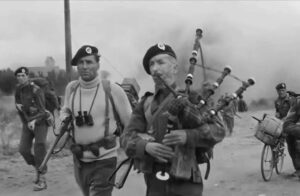
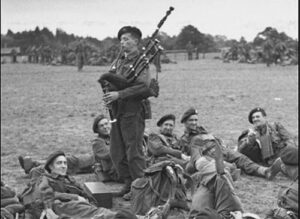 Archibald Denny, on March 8, 1941. They had two children, Malcolm John Leslie Churchill, born 1942, and Rodney Alistair Gladstone Churchill, born 1947. He also had a grandson named James Also stair Gladstone Churchill. “Mad Jack” lived a long and happy life. Nevertheless, I seriously doubt if any part of it was as crazy as the time he spent in World War I. He passed away on March 8, 1996 at 89 years old, in the county of Surrey.
Archibald Denny, on March 8, 1941. They had two children, Malcolm John Leslie Churchill, born 1942, and Rodney Alistair Gladstone Churchill, born 1947. He also had a grandson named James Also stair Gladstone Churchill. “Mad Jack” lived a long and happy life. Nevertheless, I seriously doubt if any part of it was as crazy as the time he spent in World War I. He passed away on March 8, 1996 at 89 years old, in the county of Surrey.
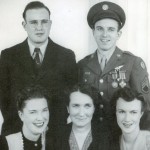
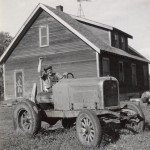 My uncle, Bill Spencer went home to be with the Lord on Christmas Day 2020. It isn’t the perfect day to lose a loved one, but I think it would be the perfect day to go home to Heaven. Instead of spending Christmas in a nursing home, alone because of Covid restrictions and sick with Covid, often not remembering most people, except maybe his kids, Uncle Bill got to spend Christmas with his parents, Anna and Allen Spencer, as well as his siblings, Laura Fredrick, Allen Spencer, and Ruth Wolfe…and most importantly, he got to spend Christmas with Jesus. How awesome is that!!
My uncle, Bill Spencer went home to be with the Lord on Christmas Day 2020. It isn’t the perfect day to lose a loved one, but I think it would be the perfect day to go home to Heaven. Instead of spending Christmas in a nursing home, alone because of Covid restrictions and sick with Covid, often not remembering most people, except maybe his kids, Uncle Bill got to spend Christmas with his parents, Anna and Allen Spencer, as well as his siblings, Laura Fredrick, Allen Spencer, and Ruth Wolfe…and most importantly, he got to spend Christmas with Jesus. How awesome is that!!
Uncle Bill and his little brother, my dad, Allen Spencer were very close growing up and into their later years too. Whenever they were together, you can bet the stories flew around the room. Their antics were crazy. When those two boys got together, all bets were off. They were farm kids, so they knew how to use dynamite to blow a tree stump out of a field…or to shorten a gate post by 3 or 4 inches or wake up the neighborhood at daybreak on July 4th.
They were intensely patriotic, and both were part of the war effort during World War II…Uncle Bill as a riveter 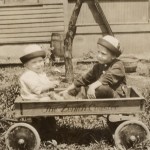
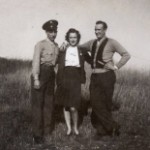 on ships and planes, and my dad as an airplane assembler and later, flight engineer and top turret gunner on a B-17. Not being able to serve was a great disappointment to Uncle Bill, who really wanted to go along with his little brother to fight the war. Thankfully, both were alive at its end, and because they were, my cousins Pam Wendling, Bill Spencer, and Jim Spencer got to have a dad, and my sisters, Cheryl Masterson, Caryl Reed, Alena Stevens, Allyn Hadlock and I got to exist.
on ships and planes, and my dad as an airplane assembler and later, flight engineer and top turret gunner on a B-17. Not being able to serve was a great disappointment to Uncle Bill, who really wanted to go along with his little brother to fight the war. Thankfully, both were alive at its end, and because they were, my cousins Pam Wendling, Bill Spencer, and Jim Spencer got to have a dad, and my sisters, Cheryl Masterson, Caryl Reed, Alena Stevens, Allyn Hadlock and I got to exist.
Uncle Bill was the family historian. He loved looking into his ancestry, and because he did, we all got to know so much, or about our family that we ever would have otherwise. He was sometimes helped with his nephews, Gene and Dennis Fredrick, and grandnephews Tim and Shawn Fredrick. Uncle Bill was meticulous with the family history, striving relentlessly to get everything down on paper (no computer for Uncle Bill) and to get it correct. He was a champion of family truth, and we are the beneficiaries…as are many cousins around the country.


They have been back together for over a year in Heaven now, and I know that they and their sisters and parents are having the time of their lives. Nevertheless, we all miss them very much here on Earth, and look forward to seeing all of them again in Heaven. Today would have been Uncle Bill’s 100th birthday. It was a life well lived, and we were blessed to have him. He almost made it, going home just a month short of his 99th birthday. Happy birthday in Heaven, Uncle Bill. We love and miss you very much.
 My niece, Dustie Masterson works as a shift manager at Walgreen’s in Casper, Wyoming, and in the time she has been there, she has become an indispensable asset to the store. You never know were you will find her when you walk in, because she seems to be everywhere at once, and the places she isn’t will be calling for her help before you know it. It’s not that the store is out of control, but rather that under Dustie’s leadership, it is a well-oiled machine. She seems to be everywhere at once, because Dustie is a mover and a shaker. A mover and a shaker is defined as “a powerful person who initiates events and influences people” and that is much like what Dustie is. She stays busy, helps out where needed, and keeps things running smoothly, but she also inspires the people she works with to excel in their jobs too.
My niece, Dustie Masterson works as a shift manager at Walgreen’s in Casper, Wyoming, and in the time she has been there, she has become an indispensable asset to the store. You never know were you will find her when you walk in, because she seems to be everywhere at once, and the places she isn’t will be calling for her help before you know it. It’s not that the store is out of control, but rather that under Dustie’s leadership, it is a well-oiled machine. She seems to be everywhere at once, because Dustie is a mover and a shaker. A mover and a shaker is defined as “a powerful person who initiates events and influences people” and that is much like what Dustie is. She stays busy, helps out where needed, and keeps things running smoothly, but she also inspires the people she works with to excel in their jobs too.

Dustie is just as much an inspiration in her home. She inspires her kids to do well in school and her husband, Rob Masterson to do well in his job too. Being managers is something they share, although at different places. I think that the leadership qualities that Dustie and Rob have are already showing up in their children. Some things are inherited too, and these kids will do well in life.
Dustie is a great leader, but that is not all that Dustie is about. Dustie has a great sense of humor, and she likes being very silly, especially with her kids. She shows them that they don’t have to spend their whole life working feverishly, or being serious as the contemplate their lives, or even hidden away with their noses in a book. Of course, those things are necessary at the proper times, but there is also a time to be…silly, and to laugh about their silliness. Life can sometimes get far too serious, and like the Bible says in Ecclesiastes 3:1-8, “To everything there is a season, A time for every purpose under heaven: A time to be born, And a time to die; A time to plant, And a time to pluck what is planted; A time to kill, And a time to heal; A time to break down, And 
 a time to build up; A time to weep, And a time to laugh; A time to mourn, And a time to dance; A time to cast away stones, And a time to gather stones; A time to embrace, And a time to refrain from embracing; A time to gain, And a time to lose; A time to keep, And a time to throw away; A time to tear, And a time to sew; A time to keep silence, And a time to speak; A time to love, And a time to hate; A time of war, And a time of peace.” Dustie loves the Bible, and I love that she does, and that she knows there is a time to laugh. Today is Dustie’s birthday. Happy birthday Dustie!! Have a great day!! We love you!!
a time to build up; A time to weep, And a time to laugh; A time to mourn, And a time to dance; A time to cast away stones, And a time to gather stones; A time to embrace, And a time to refrain from embracing; A time to gain, And a time to lose; A time to keep, And a time to throw away; A time to tear, And a time to sew; A time to keep silence, And a time to speak; A time to love, And a time to hate; A time of war, And a time of peace.” Dustie loves the Bible, and I love that she does, and that she knows there is a time to laugh. Today is Dustie’s birthday. Happy birthday Dustie!! Have a great day!! We love you!!
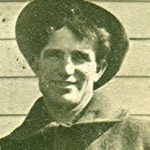
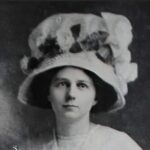
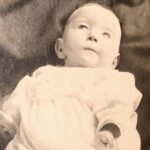 My grandfather, Allen Luther Spencer, was a man who lived a hard life. Early in his first marriage, he and his wife, Edna Stanton Spencer, lost their daughter, Dorothy Spencer, who was my half-great aunt. She was just over 5 months old. It was a devastating loss for them, and the beginning of the end of their marriage. They were either pregnant then or got pregnant shortly after Dorothy’s passing, because my half-uncle, Norman Spencer was born just 9 months after Dorothy’s passing. Unfortunately, that was not enough to hold the marriage together, and the couple divorced a short time later. My grandfather married my grandmother, Anna Schumacher Spencer, and they had four wonderful children together, which is, of course, why I exist. My dad was Allen Lewis Spencer, one of those four children. I have always felt sad at what my grandfather went through in his life.
My grandfather, Allen Luther Spencer, was a man who lived a hard life. Early in his first marriage, he and his wife, Edna Stanton Spencer, lost their daughter, Dorothy Spencer, who was my half-great aunt. She was just over 5 months old. It was a devastating loss for them, and the beginning of the end of their marriage. They were either pregnant then or got pregnant shortly after Dorothy’s passing, because my half-uncle, Norman Spencer was born just 9 months after Dorothy’s passing. Unfortunately, that was not enough to hold the marriage together, and the couple divorced a short time later. My grandfather married my grandmother, Anna Schumacher Spencer, and they had four wonderful children together, which is, of course, why I exist. My dad was Allen Lewis Spencer, one of those four children. I have always felt sad at what my grandfather went through in his life.
Grandpa struggled with some things in his life, but his children loved him. He was a stern parent, but that was truly a part of the times. Many stern parents came out of that era, and while some of the children didn’t like it, they turned out to be great adults, and I suppose that they would have to say that in part their dad had something to do with that. Their mom, my grandma, was a much more gentle person, but make no mistake, she could be stern too if the situation warranted it. Grandma was a gentle person, but she was also a very strong person…physically and emotionally. She ran the family farm while grandpa was away working on the Great Northern Railway as a carpenter, and she did an excellent job.
I never really knew either of these grandparents, because my grandfather passed away October 19, 1951, about a year and a half before my parents were married, and 4½ years before I was born. My grandmother passed away 6 months after I was born. I will have to get to know them when I go to Heaven, but when I look at their pictures, I see people who lived during hard years in our nation’s history, and came through it successfully to raise the wonderful children I now call my dad, aunts and uncles. Sadly, they too have all gone to Heaven now. I can imagine the happy times they are all having up there…no more sadness, loss, or tears. 
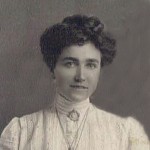
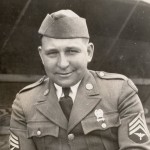 They can spend time together, getting to know their half-sister too, and there is no distance to cross. Today is the 142nd anniversary of my grandfather’s birth. How could it possibly be that many. Nevertheless, it is, and I know the party is on up there. Happy birthday in Heaven, Grandpa Spencer. We all love you very much, and can’t wait to meet you in Heaven one day.
They can spend time together, getting to know their half-sister too, and there is no distance to cross. Today is the 142nd anniversary of my grandfather’s birth. How could it possibly be that many. Nevertheless, it is, and I know the party is on up there. Happy birthday in Heaven, Grandpa Spencer. We all love you very much, and can’t wait to meet you in Heaven one day.
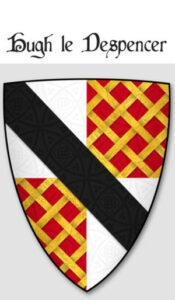 For many years, I thought my Spencer line came from England, but some things didn’t quite add up. When I started seeing DeSpencer and Le DeSpencer, I suspected that we might have immigrated to England from France, which my DNA proved to be correct. I’m more French than English. Nevertheless, for centuries, my Spencer ancestors did live in England, married English people, and so the line blended into more English blood in the current Spencers.
For many years, I thought my Spencer line came from England, but some things didn’t quite add up. When I started seeing DeSpencer and Le DeSpencer, I suspected that we might have immigrated to England from France, which my DNA proved to be correct. I’m more French than English. Nevertheless, for centuries, my Spencer ancestors did live in England, married English people, and so the line blended into more English blood in the current Spencers.
One Hugh le DeSpencer, who was the 1st Baron le DeSpencer, whose connection to me, while most assuredly there, would have to be researched to determine the level of cousinship, or whatever other relationship it is; was an important ally of Simon de Montfort during the reign of Henry III. He served briefly as Justiciar of England in 1260. In the “Middle Ages in England and Scotland the Chief Justiciar was roughly equivalent to a modern Prime Minister of the United Kingdom as the monarch’s chief minister.” Baron le DeSpencer also served as Constable of the Tower of London. “The Constable of the Tower is the most senior appointment at the Tower of London. In the  Middle Ages a constable was the person in charge of a castle when the owner…the king or a nobleman…was not in residence. The Constable of the Tower had a unique importance as the person in charge of the principal fortress defending the capital city of England.”
Middle Ages a constable was the person in charge of a castle when the owner…the king or a nobleman…was not in residence. The Constable of the Tower had a unique importance as the person in charge of the principal fortress defending the capital city of England.”
As chief justiciar of England, Hugh Le DeSpencer, first played an important part in 1258, when he was prominent on the baronial side in the Mad Parliament of Oxford, so called because they apparently argued a lot… and because of a possible misspelling of the word insigne as insane in whatever this says…”Hoc anno fuit illud insane parliamentum apud Oxoniam.” In 1260 the barons chose Le DeSpencer to succeed Hugh Bigod as Justiciar, and in 1263 the king was further compelled to put the Tower of London in his hands. He was the son  of Hugh le DeSpencer I, born in about 1223 and was summoned to Parliament by Simon de Montfort. Hugh was summoned as Lord DeSpencer on December 14, 1264 and was Chief Justiciar of England and a leader of the baronial party, and so might be deemed a baron, although that may not have been completely legal.
of Hugh le DeSpencer I, born in about 1223 and was summoned to Parliament by Simon de Montfort. Hugh was summoned as Lord DeSpencer on December 14, 1264 and was Chief Justiciar of England and a leader of the baronial party, and so might be deemed a baron, although that may not have been completely legal.
He remained allied with Montfort to the end, and was present at the Battle of Lewes. He was killed fighting on de Montfort’s side at the Battle of Evesham in August 4, 1265. He was slain by Roger Mortimer, 1st Baron Wigmore. That killing caused a feud to begin between the DeSpencer and the Mortimer families.
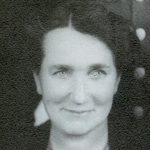
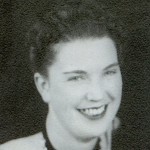 My grandmother, Anna Schumacher Spencer and my aunt, Laura Spencer Fredrick were birthday buddies. That seems to be a much more common thing than I ever knew. My grand-niece, Elliott Stevens also shares this birthday with her 2nd great grandma and her 2nd great aunt. Though they never got to meet her, I know they would have absolutely loved Elliott and sharing their birthday with her. Grandma and Aunt Laura spent a lot of time together in her early years. Aunt Laura was her parents pride and joy, and their only child for 10 years. No one has been able to tell me why they waited 10 years to add to their little family, but add they did, with sons, William and Allen, and daughter Ruth, all in fairly quick succession. Nevertheless, it was Aunt Laura who would spend 10 years doing absolutely everything with her mother. They visited friends and family together. They kept house together, with Grandma teaching her little daughter all the things she would need to know as a grown woman. Those were special bonding years for both of the birthday buddies. I would imagine that those birthdays were cause for an extra special celebration too.
My grandmother, Anna Schumacher Spencer and my aunt, Laura Spencer Fredrick were birthday buddies. That seems to be a much more common thing than I ever knew. My grand-niece, Elliott Stevens also shares this birthday with her 2nd great grandma and her 2nd great aunt. Though they never got to meet her, I know they would have absolutely loved Elliott and sharing their birthday with her. Grandma and Aunt Laura spent a lot of time together in her early years. Aunt Laura was her parents pride and joy, and their only child for 10 years. No one has been able to tell me why they waited 10 years to add to their little family, but add they did, with sons, William and Allen, and daughter Ruth, all in fairly quick succession. Nevertheless, it was Aunt Laura who would spend 10 years doing absolutely everything with her mother. They visited friends and family together. They kept house together, with Grandma teaching her little daughter all the things she would need to know as a grown woman. Those were special bonding years for both of the birthday buddies. I would imagine that those birthdays were cause for an extra special celebration too.
I have looked through my grandmother’s photo album many times, and I have seen some of their outings. Pictures at historic sites with a cannon, a zoo, and the homes of friends and family are displayed in between the covers of Grandma’s book of treasured memories. I wish I could have know her, and it makes me sad that she passed away just 6 short months after I was born. I did get to meet her, of course, but I don’t remember those times, sadly. All I have are old movies with Grandma and me.
Grandma loved to show her daughter, Laura and later her other children, William, Allen, and Ruth as much of the world as she could. I sometimes wonder if it was Grandma or Grandpa who put the wanderlust in the hearts of their children, because they all loved to travel and see the great country we all live in. They all traveled extensively, some to other countries too. There is much to see out there, and they wanted to see it all. They were all adventurous people. Grandma nd Uncle Bill eventually went home to the area they loved most, the 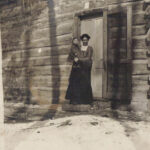
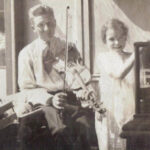 area of Superior, Wisconsin and Duluth Minnesota, but the other children would move to other places. Laura ended up in Portland, Oregon; my dad, Allen ended up in Casper, Wyoming; and Aunt Ruth ended up in Newport, Washington…all beautiful areas of the country. All of them have now moved to Heaven, with my Uncle Bill passing away on Christmas Day, 2020. I miss them all, and can’t wait to see them again in Heaven. Today is the anniversary of birthday buddies, Anna and Laura’s birthdays. Happy birthday in Heaven Grandma Spencer and Aunt Laura. We love and miss you both very much.
area of Superior, Wisconsin and Duluth Minnesota, but the other children would move to other places. Laura ended up in Portland, Oregon; my dad, Allen ended up in Casper, Wyoming; and Aunt Ruth ended up in Newport, Washington…all beautiful areas of the country. All of them have now moved to Heaven, with my Uncle Bill passing away on Christmas Day, 2020. I miss them all, and can’t wait to see them again in Heaven. Today is the anniversary of birthday buddies, Anna and Laura’s birthdays. Happy birthday in Heaven Grandma Spencer and Aunt Laura. We love and miss you both very much.
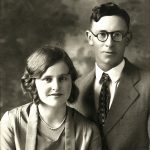
 My husband, Bob Schulenberg’s grandmother, Nettie Knox was not born during the pioneer era, but she did live a life that mirrored that era to a degree. While she was born in the West, in Clydes Park, Montana, she was nevertheless, a kind of pioneer woman. Grandma was born on June 30, 1909 to Orin and Eva (Landis) Noyes, and married Robert Knox on June 14, 1928. She was not born before cars were invented, but sometimes she lived like she was in the Old West. Grandpa was worked on a sheep ranch, and for a time when my mother-in-law, Joann Schulenberg was a little girl of about 3 years, they lived in a sheep wagon. The shepherd needed to be near the sheep, and Grandma was a homemaker, so she went with him. Plus, the sheep wagon was provided to them free of charge, and you don’t turn down a rent free place to live. Of course, that wasn’t where they lived for very long, because even with just the three of them for the first 15 years of her life, living in a sheep wagon would not really be roomy enough.
My husband, Bob Schulenberg’s grandmother, Nettie Knox was not born during the pioneer era, but she did live a life that mirrored that era to a degree. While she was born in the West, in Clydes Park, Montana, she was nevertheless, a kind of pioneer woman. Grandma was born on June 30, 1909 to Orin and Eva (Landis) Noyes, and married Robert Knox on June 14, 1928. She was not born before cars were invented, but sometimes she lived like she was in the Old West. Grandpa was worked on a sheep ranch, and for a time when my mother-in-law, Joann Schulenberg was a little girl of about 3 years, they lived in a sheep wagon. The shepherd needed to be near the sheep, and Grandma was a homemaker, so she went with him. Plus, the sheep wagon was provided to them free of charge, and you don’t turn down a rent free place to live. Of course, that wasn’t where they lived for very long, because even with just the three of them for the first 15 years of her life, living in a sheep wagon would not really be roomy enough.
Grandma loved tradition, Christmas, birthdays, and celebrations in general, but when my daughter, Corrie Petersen was born on her birthday, and she was her first great grandchild, Grandma was ecstatic!! She considered that to be the greatest git ever, and they always had a strong bond. They always celebrated that birthday together, and new pictures were taken every year to see how much they had both changed. Of course, to me it seemed that it was Corrie did the changing. She was the one that was growing up, and Grandma seemed to have a timelessness about her. In fact, it seemed like she had an innocence about her. Maybe it was her love of tradition and celebration, or maybe she was just blessed with good genes. Whatever it was, Grandma just never seemed to get old…to me at least. Maybe that was why Grandma and Corrie could have such a great relationship too. They could both get excited about the same kinds of things.
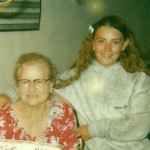
 When I think of what Corrie is working on becoming, and has already become, I know that Grandma Knox would have been so proud of her. Grandma suffered with arthritis and always whiced that the medical community could find a cure for it. While there is no cure yet, maybe there will be someday. Nevertheless, Corrie tries to comfort people, no matter what the disease is that they have. Her job is is give comfort to her patients, and I know that Grandma would have seen that as a great contribution to the world. Today is the 113 anniversary of Grandma’s birth. Happy birthday in Heaven, Grandma. We love and miss you very much.
When I think of what Corrie is working on becoming, and has already become, I know that Grandma Knox would have been so proud of her. Grandma suffered with arthritis and always whiced that the medical community could find a cure for it. While there is no cure yet, maybe there will be someday. Nevertheless, Corrie tries to comfort people, no matter what the disease is that they have. Her job is is give comfort to her patients, and I know that Grandma would have seen that as a great contribution to the world. Today is the 113 anniversary of Grandma’s birth. Happy birthday in Heaven, Grandma. We love and miss you very much.
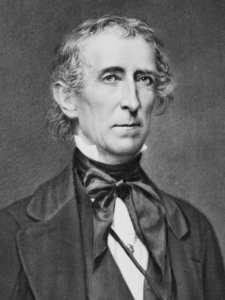 John Tyler, the tenth president of the United States, was born on March 29, 1790 in Virginia to John Tyler Sr and Mary Marot (Armistead) Tyler. He had two brothers and five sisters, but his mother died of a stroke in 1797 when John was seven years old. I can’t imagine how hard it was on young John to lose his mother. That wasn’t the only hard part of his youth. John was frail and sickly most his young life. Considering the start he had in life, it would not seem likely that John Tyler’s life would have amounted to much…but those who think that would be wrong.
John Tyler, the tenth president of the United States, was born on March 29, 1790 in Virginia to John Tyler Sr and Mary Marot (Armistead) Tyler. He had two brothers and five sisters, but his mother died of a stroke in 1797 when John was seven years old. I can’t imagine how hard it was on young John to lose his mother. That wasn’t the only hard part of his youth. John was frail and sickly most his young life. Considering the start he had in life, it would not seem likely that John Tyler’s life would have amounted to much…but those who think that would be wrong.
John Tyler came from a political family, and he was destined for the presidency. Tyler was admitted to the Virginia bar at the age of 19. He was actually too young to be eligible, but the admitting judge neglected to ask his age. By this time, his father was Governor of Virginia (1808–1811), and John Tyler Jr started a legal practice in Richmond, the state capital. In 1811, at just 21 years of age, Tyler was elected to represent Charles City County in the Virginia House of Delegates, an office he held for five successive one-year terms. As a state legislator, Tyler sat on the Courts and Justice Committee. Following the War of 1812, Tyler’s father died in 1813, and Tyler inherited thirteen slaves along with his father’s plantation. In 1816, he resigned his legislative seat to serve on the Governor’s Council of State, a group of eight advisers elected by the General Assembly. He then ran for the US House of Representatives, narrowly winning the election. Later he served in the US Senate, before being elected as Vice-President of the United States under William Henry Harrison. Harrison served from March 4, 1841 to his death on April 4, 1841, after which John Tyler took over serving until March 4, 1845.
You might think that Tyler’s political career was the defining point in his life, but he is actually known for something much more surprising. Tyler fathered more children than any other American president, but it isn’t even that fact that is so surprising. His first wife was Letitia Christian and together they had eight children, 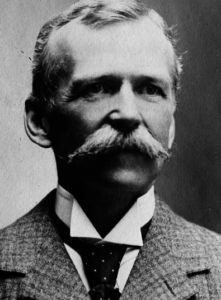 Mary (1815–1847), Robert (1816–1877), John (1819–1896), Letitia (1821–1907), Elizabeth (1823–1850), Anne (1825–1825), Alice (1827–1854) and Tazewell (1830–1874).. She died of a stroke while they lived in the White House in September 1842. He married again on June 26, 1844, to Julia Gardiner (July 23, 1820 – July 10, 1889), with whom he had seven children, David (1846–1927), John Alexander (1848–1883), Julia (1849–1871), Lachlan (1851–1902), Lyon (1853–1935), Robert Fitzwalter (1856–1927) and Pearl (1860–1947). Tyler’s son, Lyon was born when Tyler was 63 years, and while he was not his youngest child, it would be Lyon who would bring about the thing that really makes Tyler something special. Lyon would go on to father two sons of his own…one when he was 71 and one when he was 75. One of those sons, Harrison Ruffin Tyler is still alive, meaning that John Tyler, tenth president of the United States, who was born in 1790, has a grandson who is still alive in 2021. His older brother, Lyon Gardiner Tyler Jr passed away in September of 2020. The fact that their great grandfather was the tenth president, is unbelievable to the children of Lyon’s sons.
Mary (1815–1847), Robert (1816–1877), John (1819–1896), Letitia (1821–1907), Elizabeth (1823–1850), Anne (1825–1825), Alice (1827–1854) and Tazewell (1830–1874).. She died of a stroke while they lived in the White House in September 1842. He married again on June 26, 1844, to Julia Gardiner (July 23, 1820 – July 10, 1889), with whom he had seven children, David (1846–1927), John Alexander (1848–1883), Julia (1849–1871), Lachlan (1851–1902), Lyon (1853–1935), Robert Fitzwalter (1856–1927) and Pearl (1860–1947). Tyler’s son, Lyon was born when Tyler was 63 years, and while he was not his youngest child, it would be Lyon who would bring about the thing that really makes Tyler something special. Lyon would go on to father two sons of his own…one when he was 71 and one when he was 75. One of those sons, Harrison Ruffin Tyler is still alive, meaning that John Tyler, tenth president of the United States, who was born in 1790, has a grandson who is still alive in 2021. His older brother, Lyon Gardiner Tyler Jr passed away in September of 2020. The fact that their great grandfather was the tenth president, is unbelievable to the children of Lyon’s sons.

